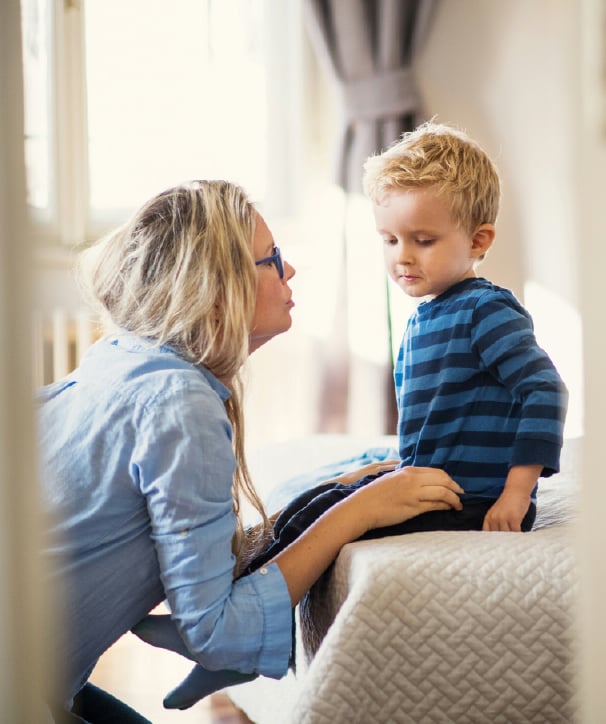Clinical Trials Have a Readiness Crisis
Most sponsors still optimize for the wrong variables. Jumo Health exists to own what the industry keeps ignoring: patient readiness as an operating discipline, so the right patients enroll, stay and complete.
Eligibility ≠ Readiness
Consent ≠ Commitment
Enrollment ≠ Completion
We don't just help you recruit more patients. We help you advance patients that are prepared, supported, and able to finish.
Trusted by Global Life Sciences Leaders
17 of the world's top 25 life science companies

.png?width=1280&height=590&name=Logo_Sanofi_(2022).png)
.png)




.svg.png)
Latest News & Insights
3 min read
Jumo Health Launches PRISM™, Defining a New Category of Readiness-Based Clinical Trial Execution
John Seaner: Jan 29, 2026
It's time to rethink patient experience.
Jumo Health is a Patient Experience Organization purpose-built for the emotional, cognitive, and behavioral realities that determine whether patients enroll, stay and complete.
We don't do recruitment. We build readiness.
We don't run awareness campaigns. We design behavioral systems.
We don't treat patients as pipeline volume. We orchestrate experiences that prepare people to commit.
When readiness is built deliberately:
- Screen failures stop being "expected"
- Enrollment becomes stable instead of volatile
- Retention stops depending on heroics
- Sites regain trust
- Forecasting becomes credible
Clinical trials aren't failing because of lack of tools.
They're failing because of how those tools think about patients.
-
Disease burden creates emotional paralysis
-
Protocol complexity drives confusion and avoidance
-
Trust gaps cause hesitation
-
Provider time constraints limit guidance
-
Caregiver burnout reduces follow-through
| What's Being Deployed | What it Creates |
|---|---|
|
One-size-fits-all education delivered too late
|
Overwhelmed patients before site contact
|
|
Platforms optimized for volume, not preparedness
|
Caregivers excluded from real decision-making
|
|
Sites forced to compensate for readiness gaps
|
HCPs without tools to guide participation
|
|
Engagement measured by activity, not decision quality
|
Sites stretched thin and reactive
|
|
AI applies to outreach–not commitment
|
Sponsors inheriting failure already decided upstream
|
Clinical trials aren't failing because of lack of tools.
They're failing because of how those tools think about patients.
Disease burden creates emotional paralysis. Protocol complexity drives confusion and avoidance. Trust gaps cause hesitation. Provider time constraints limit guidance. Caregiver burnout reduces follow-through.
What's Deployed
- One-size-fits-all education delivered too late
- Platforms optimized for volume, not preparedness
- Sites forced to compensate for readiness gap
- Engagement measured by activity, not decision quality
- AI applies to outreach–not commitment
What it Creates
- Overwhelmed patients before site contact
- Caregivers excluded from real decision-making
- HCPs without tools to guide participation
- Sites stretched thin and reactive
- Sponsors inheriting failure already decided upstream

Experience isn't solved with a single tool. It's built in layers.
Jumo Health delivers patient readiness through two solutions designed to solve different breakdown points in modern trials: CORETM and PRISMTM.
CORETM
Content for Recruitment & Education
CORE delivers readiness through expertly designed patient education, so patients understand what participation requires clinically, logistically, and emotionally before enrollment.
- Translates protocols into human understanding
- Reduces fear, confusion and expectation mismatch
- Supports patients and caregivers across the journey
- Relieves site re-explanation burden
Best For:
Complex, rare, pediatric, or high-burden trials that need immediate impact without system overhaul.
PRISMTM
Patient Readiness & Intelligence System
PRISM governs readiness as infrastructure. It turns patient experience into a measurable, predictive operational asset.
- Identifies eligible patients with high probability of activation
- Assesses cognitive readiness
- Personalizes education via conversational AI
- Governs advancement before failure occurs
- Surfaces real-time readiness, risk, and completion signals
Best For:
Clinical operations leaders responsible for timelines, predictability, and cost-per-completer.
Traditional approaches have predictable shortcomings.
Agencies
-
Produce assets without owning outcome.
-
Inconsistent depth and durability
Education varies by brief, budget, and timeline, then disappears.
-
Measured on delivery, not understanding
Success stops at launch, not at readiness.
In-House
-
Fragmented and resource-constrained
Education is built piecemeal alongside other priorities.
-
Hard to scale or reuse
Each study starts from scratch with littel compounding value.
-
No system of learning
Insights don't accumulate or improve future efforts.
CROs
-
Execution-focused, not education-led
CROs assume patients arrive prepared.
-
Education pushed downstream to sites
Adds burden to already stretched teams.
-
Reactive to failure
Problems are manages after the surface, not prevented upstream.
Agencies
- Produce assets without owning outcome.
- Optimize for delivery, not decision quality
- Disappearing once content is launched
DIY/In-House
- Slow, inconsistent, and under-resourced
- Education built without behavioral expertise
- No system for measurement or learning
CROs
- Focused on execution after decisions are already made
- Sites inherit readiness gap
- Retention problems treated as operation issues–not experience failures
Readiness Improves outcomes for every stakeholder:
Patients
Less fear. Fewer surprises.Stronger commitment.

HCPs
-
Better-informed conversations
-
Higher-quality referrals
- Stronger trust with patients

Sites
-
Reduced education burden
-
More prepared patients
- Greater consistency across participants

Sponsors
-
Higher-quality demand entering trials
-
Lower downstream friction
- Reusable education infrastructure

Readiness improves outcomes for every stakeholder.
Patients
Less fear. Fewer surprises. Stronger commitment.
Caregivers
Clearer expectations. Defines roles. Sustained support.
HCPs & Sites
Reduce burden. Higher-quality referrals. Fewer downstream issues.
Sponsors & CROs
More predictable enrollment. Higher completion rates. Lower volatility.
When patients feel prepared, they stay.
Reduce dropouts, align care teams, and boost site engagement–driving higher quality referrals, faster randomization, and better patient experience.
These aren't projections. They're operational metrics we track in real time.
Increase in qualified patient referrals
Improvement in randomization rates
Improvement in time to recruit
You and your team have shown amazing collaborative attitude throughout this whole process. The product at the end of it all exceeded our initial expectations.
I wanted to thank you very much for all your hard work on these projects! I continue to be very impressed by your tremendous design abilities and creative content. I have nothing but good things to say about you. I hope to work with you all again soon.
I've never worked with a more professional and enthusiastic partner in any of my trials...it has been such a pleasure working with the Jumo team throughout the entire process.
When our project evolved over the course of the document generation, not only did your design pivot to quickly include the changes, but your production team beat your projected timelines!
Built for clinical operations leaders tired of explaining delays that feel preventable, funding rescue plans instead of prevention, and inheriting fragility no one designed for.
What Happens Next:
- Readiness and experience audit
- Identification of failure points
- Deployment roadmap with impact modeling